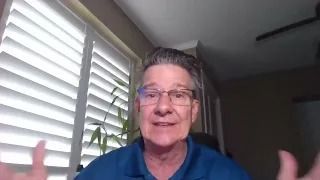Call (727) 784-5555
Homeowners gain $2.9 trillion in equity in Q2 2021
CoreLogic report shows a 29.3% year-over-year increase in equity
Homeowners with mortgages gained $2.9 trillion in equity in the second quarter of 2021, a 29.3% year-over-year increase, according to a new report by CoreLogic released Wednesday. This marks an average gain of $51,500(!) per borrower since the second quarter of 2020.
The amount of equity for a property is determined by comparting the estimated current value of the property against the mortgage debt outstanding (MDO). If the MDO is less than the estimated value, the property is determined to be in a positive equity position and if the MDO is greater, then the property is determined to be in a negative equity position. CoreLogic based the report off of public record data for mortgaged residential properties that have a current estimated value.
The states with the greatest average year-over-year equity gain per borrower include the very hot Western markets of California, Washington, Hawaii, Idaho, Utah and Arizona, with the greatest equity gains being recorded in California ($116,000 per borrower). Meanwhile the Chicago- Naperville-Arlington Heights metro area had the largest share of negative equity for homeowners in Q2 2021, at 5.2%.
“Home equity wealth is at a record level and will bolster economic activity in the coming year,” Dr. Frank Nothaft, chief economist for CoreLogic, said in a statement. “Higher wealth spurs additional consumer expenditures and also supports room additions and other investments in homes, adding to overall economic activity.”
As compared to the first quarter of 2021, the total number of mortgaged homes in negative equity in quarter two decreased by 12% to 1.2 million homes. In total, homeowners of 163,000 residential properties regained equity in Q2 2021. In a year-over-year comparison, 30% fewer homes are in negative equity in the second quarter of 2021 compared to the second quarter of 2020.
In addition, the national aggregate value of negative equity decreased $18.9 billion or 6.6% in the second quarter of 2021 as compared to Q2 2020.
This strong increase in equity can partially be attributed to rising consumer confidence, which rose to its highest level since the start of the pandemic in June 2021, according to the report. Of the mortgage holders surveyed by CoreLogic, 59% of respondents said they feel extremely confident in their ability to keep current on their mortgage payments in coming years. Additionally, the majority of borrowers that fell behind on their mortgage payments over the course of the pandemic have a large home equity cushion, which has helped them to avoid foreclosure.
“The growth in homeowner equity provides a strong financial cushion for tens of millions Americans. For those most impacted by the pandemic, equity gains will help play a critical role in staving off foreclosure,” Frank Martell, president and CEO of CoreLogic, said in a statement. “Based on projected increases in economic activity and home values over the next year, we expect to see further gains in equity and a corresponding drop in negative equity, forbearance rates and foreclosure.”
Looking to the future, based on Q2 2021 data, if home prices increase by 5%, 160,000 homeowners would regain equity, but if home prices decline by 5%, 211,000 would fall underwater.
Start Your Loan
with DDA todayYour local Mortgage Broker
Mortgage Broker Largo See our Reviews
Looking for more details? Listen to our extended podcast!
Check out our other helpful videos to learn more about credit and residential mortgages.





